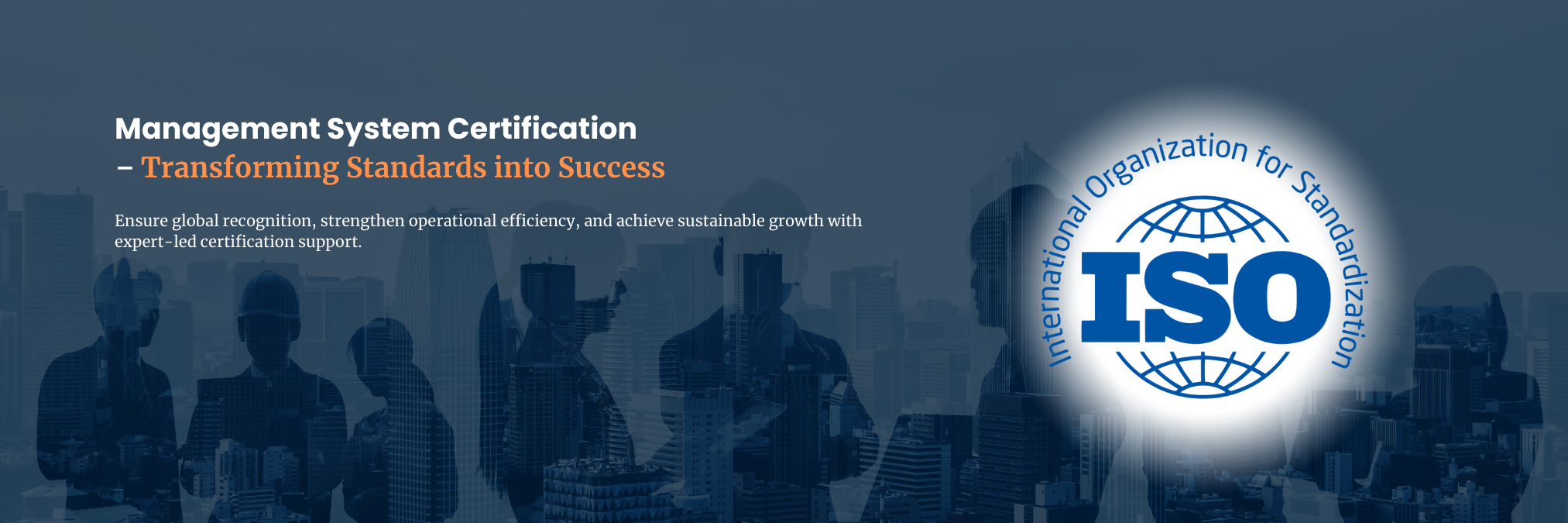

Management System Certification ensures that organizations adhere to internationally recognized standards for quality, safety, environmental sustainability, and operational efficiency. These certifications enhance compliance, streamline processes, and boost customer confidence, giving businesses a competitive edge in the market.
In today’s global market, businesses must comply with stringent regulatory and industry standards to maintain credibility and efficiency. Management System Certification validates that an organization follows best practices, meets statutory and regulatory requirements, and demonstrates commitment to continuous improvement. Various certifications, such as ISO 9001 (Quality), ISO 14001 (Environmental), and ISO 45001 (Health & Safety), help businesses achieve operational excellence.
Organizations must comply with the following:
While specific documents vary depending on the certification type, common requirements include:
At KMA GLOBAL, we simplify the certification process by providing end-to-end assistance:
Get certified with ease! Contact KMA GLOBAL today to achieve industry-recognized certification for your organization.
BIS Management System Certification (MSC) is a certification scheme offered by the Bureau of Indian Standards (BIS) to organizations that comply with national and international management system standards, ensuring quality, safety, and efficiency in their operations.
Certification helps organizations improve their credibility, efficiency, regulatory compliance, and market competitiveness. It assures customers and stakeholders that the organization follows internationally recognized best practices.
No, it is voluntary. However, certain industries and government contracts may require certified management systems as a prerequisite for participation.
BIS provides certification for:
The application process involves:
Key documents include:
The certification process generally takes 3 to 6 months, depending on document review, audit scheduling, and compliance readiness.
BIS conducts:
If the organization does not meet the required standards, BIS provides a report highlighting the non-conformities. The organization must take corrective actions and undergo a re-audit.
Yes, BIS performs regular surveillance audits to ensure ongoing compliance. If an organization fails to maintain standards, its certification may be suspended or revoked.
The certification is typically valid for 3 years, subject to periodic surveillance audits.
The costs vary based on the type of certification, organization size, and complexity of operations. It typically includes:
Yes, organizations that fail to comply with BIS standards after certification may face penalties, suspension, or cancellation of certification.
Yes, organizations can apply for Integrated Management System (IMS) Certification, which combines two or more standards, such as QMS (ISO 9001) and EMS (ISO 14001), for streamlined compliance.
The list of BIS-certified organizations is available on the BIS website (https://www.bis.gov.in).